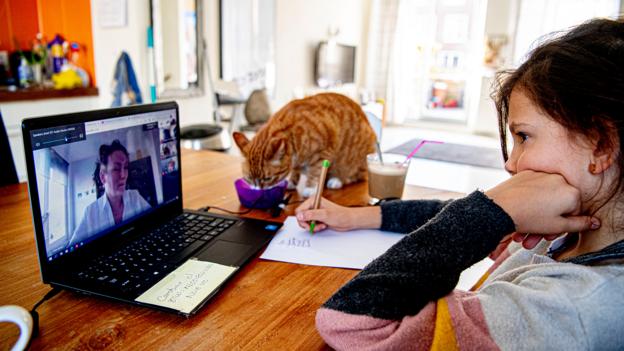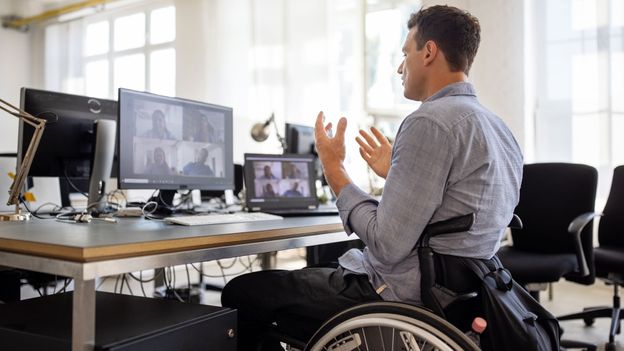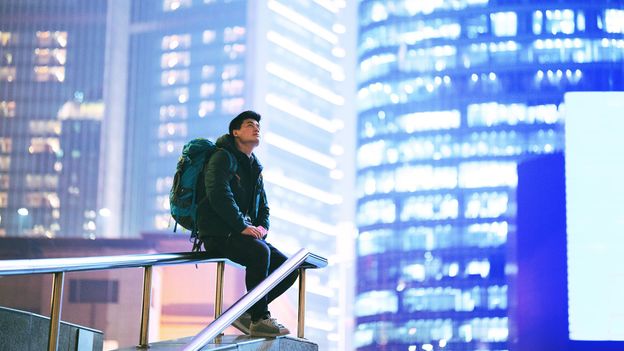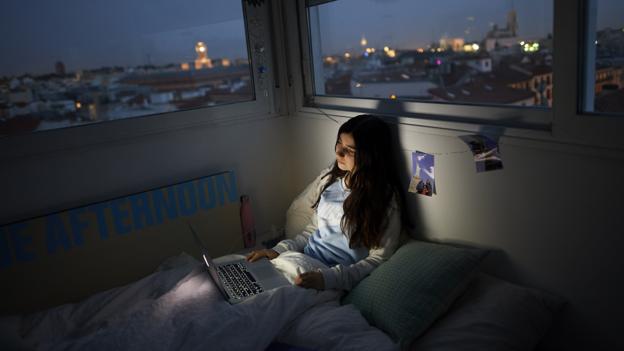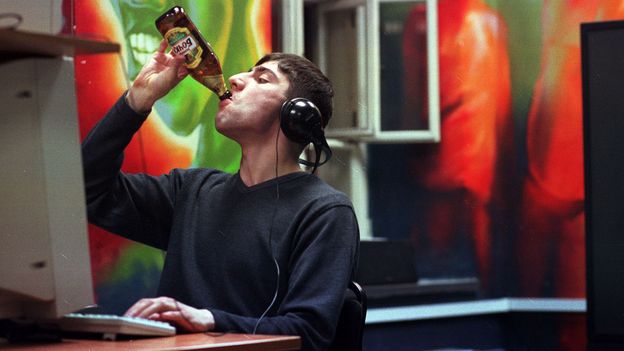Big group calls can feel particularly performative, Petriglieri warns. People like watching television because you can allow your mind to wander – but a large video call “is like you’re watching television and television is watching you”. Large group chats can also feel depersonalising, he adds, because your power as an individual is diminished. And despite the branding, it may not feel like leisure time. “It doesn’t matter whether you call it a virtual happy hour, it’s a meeting, because mostly we are used to using these tools for work.”
So how can we alleviate Zoom fatigue?
Both experts suggest limiting video calls to those that are necessary. Turning on the camera should be optional and in general there should be more understanding that cameras do not always have to be on throughout each meeting. Having your screen off to the side, instead of straight ahead, could also help your concentration, particularly in group meetings, says Petriglieri. It makes you feel like you’re in an adjoining room, so may be less tiring.
In some cases it’s worth considering if video chats are really the most efficient option. When it comes to work, Shuffler suggests shared files with clear notes can be a better option that avoids information overload. She also suggests taking time during meetings to catch up before diving into business. “Spend some time to actually check into people’s wellbeing,” she urges. “It’s a way to reconnect us with the world, and to maintain trust and reduce fatigue and concern.”
Building transition periods in between video meetings can also help refresh us – try stretching, having a drink or doing a bit of exercise, our experts say. Boundaries and transitions are important; we need to create buffers which allow us to put one identity aside and then go to another as we move between work and private personas.
And maybe, says Petriglieri, if you want to reach out, go old-school. “Write a letter to someone instead of meeting them on Zoom. Tell them you really care about them.”

